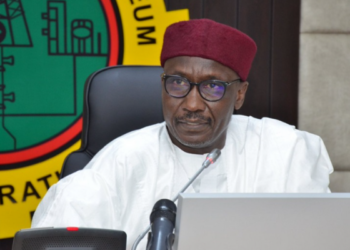A Senior Advocate of Nigeria, Chief R.O. Balogun, SAN, has asked a Federal High Court in Ilorin, Kwara State, to nullify a provision in the 2020 Value Added Tax (VAT) Modification Order, which approved the collection and remittance of VAT on basic food items sold by restaurants and hotels in Nigeria.
The VAT Modification Order 2020, now being challenged, had included basic food items (agro- and aqua-based staple food) among the extended list of items exempted from Value Added Tax at the time.
However, the order stated that VAT exemption did not cover basic food items sold in restaurants, hotels, eateries, lounges, and other similar premises, as well as by contractors, caterers, and similar vendors.
The VAT order was approved by Zainab Shamsuna Ahmed, former Minister of Finance, Budget, and National Planning, to provide clarity in interpreting the VAT Act.
Plaintiff’s Case
The alleged unconstitutionality of VAT imposed on food items sold by restaurants
- The senior lawyer seeks an order nullifying the proviso introduced on Order 33 of the VAT Modification Order 2020, which states that basic food items sold in restaurants, hotels, eateries, lounges, and similar premises are subject to VAT.
- He challenges the constitutionality of that part of the VAT Modification Order 2020.
- The lawyer, who dragged the EFCC and the Attorney General of the Federation into the suit, argues that the said order allegedly contravenes the VAT exemption on basic food items listed in the First Schedule of the VAT Act and other relevant laws.
EFCC’s alleged lack of jurisdiction and the call for restraint
- The lawyer also accuses the Economic and Financial Crimes Commission (EFCC) of relying on the order to demand VAT remittance details from his client, Ibigbemi Oloruntobi, owner of a business enterprise named Item 7 Go, under the guise of a money laundering probe.
- Balogun argued that his client’s failure to collect VAT on basic food items does not amount to tax evasion or an economic crime under the law.
- He stressed that the EFCC lacks the jurisdiction to investigate VAT compliance.
“Assuming, without conceding, that the order of the Honourable Minister is valid, our submission is that failure to collect VAT has not been criminalised.
“What has been criminalised is tax evasion, not non-collection of VAT,” he stated.
- The senior lawyer also seeks the court’s protection from the EFCC’s alleged harassment of his client and business.
“A declaration that the invitation and alleged harassment of the plaintiff and his staff by EFCC operatives regarding banking transactions and VAT collection on food items amount to a gross abuse of office, as the banker-customer relationship is contractual, and failure to collect VAT is not equivalent to tax evasion or an economic crime.”
VAT compliance probe domiciled with FIRS
- Balogun further argued that, at best, the Federal Inland Revenue Service (FIRS) should take appropriate steps to recover any uncollected VAT through civil proceedings before the appropriate court or tax tribunal.
- He was of the view that VAT compliance or any tax compliance probe is domiciled with the FIRS.
- He submitted that the EFCC has no legal basis to investigate whether VAT on food items was deducted when his client had already made it clear that he does not collect VAT from customers, in line with the supposed VAT exemption on rice and other basic food items.
What we know
Based on court documents reviewed by Nairametrics, Item 7 Go and its staff had been invited for interrogation by the EFCC, during which the Commission requested banking records, statements of account, and BVN details to conduct due diligence on the finances of the business.
- The EFCC’s Special Control Unit Against Money Laundering (SCUML) is probing the company for alleged non-compliance with the Money Laundering (Prevention and Prohibition) Act in its business operations.
- One of SCUML’s core functions is collecting statutory reports from companies and forwarding them to the Nigeria Financial Intelligence Unit (NFIU) to identify emerging trends and patterns in money laundering and terrorist financing.
- As the case unfolds, attention will be on the court’s decision regarding the alleged VAT enforcement on food items sold by restaurants.
- While the senior lawyer argues that the EFCC exceeded its authority in requesting VAT compliance details, the EFCC’s documents in court suggest a shift in focus toward alleged money laundering violations by the business enterprise.
- Nairametrics gathered that the case is scheduled for hearing on March 3, 2025, and that hearing notices have been ordered to be served on the respective parties.




















